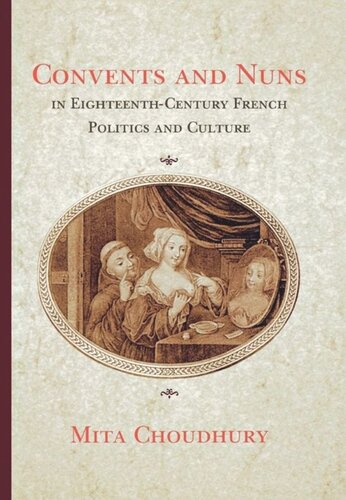

Most ebook files are in PDF format, so you can easily read them using various software such as Foxit Reader or directly on the Google Chrome browser.
Some ebook files are released by publishers in other formats such as .awz, .mobi, .epub, .fb2, etc. You may need to install specific software to read these formats on mobile/PC, such as Calibre.
Please read the tutorial at this link: https://ebookbell.com/faq
We offer FREE conversion to the popular formats you request; however, this may take some time. Therefore, right after payment, please email us, and we will try to provide the service as quickly as possible.
For some exceptional file formats or broken links (if any), please refrain from opening any disputes. Instead, email us first, and we will try to assist within a maximum of 6 hours.
EbookBell Team

4.1
40 reviewsRepresentations of convents and nuns assumed power and urgency within the volatile political culture of eighteenth-century France. Drawing from a range of literary, cultural, and legal material, Mita Choudhury analyzes how, between 1730 and 1789, lawyers, religious pamphleteers, and men of letters repeatedly asked, "Who should control the female convent and women religious?" These sources chronicled the conflicts between nuns and the male clergy, among nuns themselves, and between nuns and their families, conflicts that were presented to the public in the context of potent issues such as despotism, citizenship, female education, and sexuality.The cloister operated as a symbol of despotism, the equivalent of the Sultan's seraglio or the King's Bastille. Before 1770, lawyers and magistrates praised nuns as the personification of virtuous Christian women, often victims vulnerable to those who would use them to further their own political ends. After 1770, men of letters evaluated nuns according to more secular norms, and concluded that the convent had no purpose in society, except as a reminder of the problems inherent in the Old Regime. Choudhury elaborates on how nuns were not always passive entities, mere objects to be shaped by the political needs of others. But because they relied on men in order to make their voices heard, the place of women religious in the public sphere was a complex one based on negotiations between female action and male subjectivity. During the French Revolution, whatever support they had enjoyed was lost as republicans and moderates began to see nuns as potentially disruptive to the social order, family life, and revolutionary values.